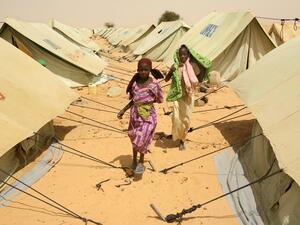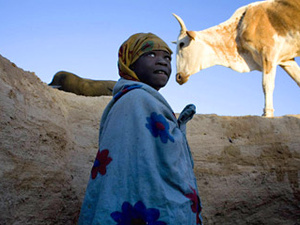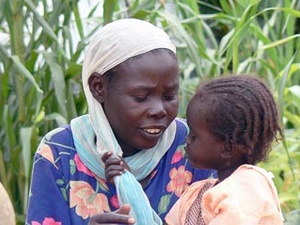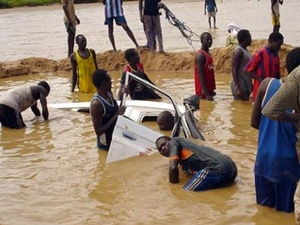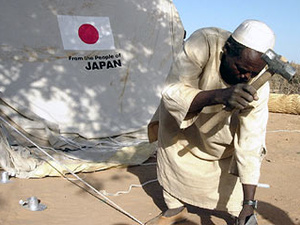Lubbers to visit Sudanese refugees in Chad
Lubbers to visit Sudanese refugees in Chad
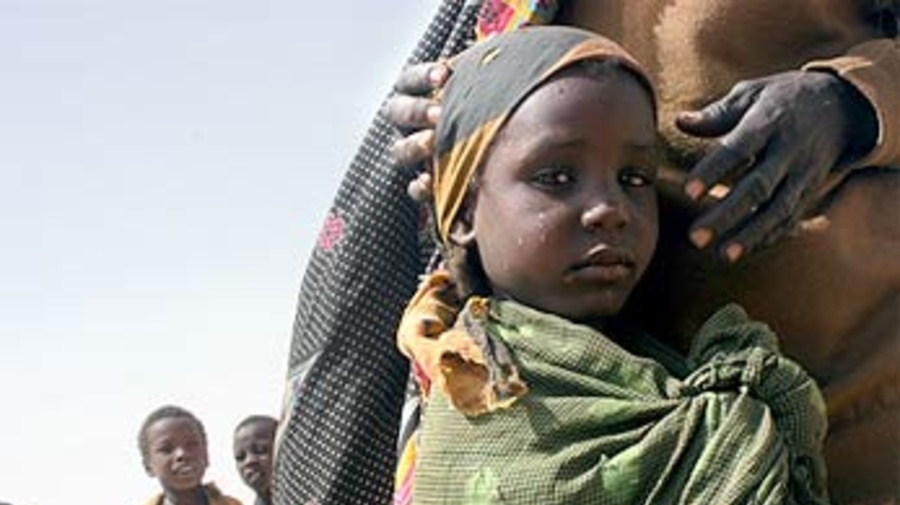
This four-year-old fled with his grandmother to Tine in Chad after he lost his mother in a village bombing in Sudan.
GENEVA, Feb 24 (UNHCR) - High Commissioner Ruud Lubbers today announced an upcoming visit to Chad to rally international support around an emergency operation that has delivered tons of relief supplies and moved more than 6,000 Sudanese refugees to safety.
The High Commissioner is set to travel on Sunday to the Chadian capital of N'Djamena, where he is scheduled to meet President Idriss Deby, other government officials and heads of UN and partner agencies.
Lubbers will also fly to Abéché in eastern Chad, where 110,000 Sudanese refugees have arrived after fleeing conflict in the Darfur region of western Sudan since last spring. He plans to visit Farchana camp, where 1,810 refugees are now receiving assistance after being relocated away from the insecure Chad-Sudan border. UNHCR is currently moving an average of 400 refugees per week to Farchana and plans to increase the frequency of convoys starting next week.
A second camp at Touloum now hosts 4,666 relocated refugees, including 1,480 who arrived on foot on their own. Convoys from the border will resume once UNHCR staff finish registering the newcomers.
Transfers to a third, new camp at Kounoungo got off to a slow start on Sunday. Only 88 of the 150 refugees who had registered for the first convoy turned up for the actual move, saying they had changed their minds because they do not want to leave relatives who were based in Birak.
UNHCR has moved on to other areas today, especially Guimeze, where refugees have said they want to be relocated to a safer site.
A separate group of 3,000 refugees so far have been registered in an ongoing exercise in the Bahai and Bamina border area, where an estimated 26,000 Sudanese have sought refuge.
UNHCR staff returning from the area report that the refugees are living along the river bed, where they can find water. A nurse from the health centre in Bahai said there were many cases of dysentery, diarrhoea and respiratory infections in early February, especially among children and the elderly. Most have received medicine. Once a week, MSF-Belgique runs a mobile clinic between Bahai and Bamina, while serious cases are referred to the medical centre in Tine.
Meanwhile, UNHCR continues to fly in aid to Abéché from Mwanza, Tanzania, part of an emergency airlift of 256 tons of relief supplies that include blankets, plastic sheeting and kitchens sets.
The refugee agency's partner, Norwegian Aid Council (NCA), has received 45 tons of water equipment ranging from water pumps to pipes, bladders, generators and large warehouse tents. Once transported to Iriba and Guéréda and installed at the refugee sites, the equipment will be able to provide water pumping and distribution for 40,000 people. NCA teams are also preparing the ground to drill for water at Touloum camp, and readying a fourth camp at Mile, 25 km north-west of Guéréda.
To meet the cost of these operations, UNHCR has revised its 2004 budget for the Chad emergency to $20.782 million. So far, it has only received $1.05 million.


